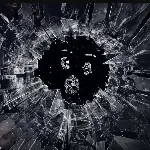What does it mean to make art in an environment that turns every image into capital?
And in such a system, has the act of creating art itself become a form of activism?

These are the starting point for an inquiry into the contradictions that define today’s entertainment industry. As creatives in a hyper mediated, algorithmically governed culture, we are not only producing stories, but surviving systems that commodify every film.
In this article, we turn to The Studio, the latest dark comedy from Seth Rogen on Apple TV+, as a case study for our time.
The show dares to look behind the curtain of modern content creation; satirizing an industry more interested in in metrics over meaning.
Through its protagonist Matt Remick, a jaded film studio head, the series offers more than just laughs; it presents a meta-commentary on the contradictions of capitalism and the slow erosion of artistic integrity.
This is not merely a review. This is an excavation.
This article explores what we call the collapse of an industry, a moment in which the spectacle of cinema cannibalizes itself under the weight of commerce, cultural politics and digital surveillance. Each chapter will dissect a different axis of this collapse: the death of the auteur in the age of blockbusters, the corporatization of diversity and performative progressivism.
Without further ado, let’s dive in.
Art vs. Commerce

As artists, the first dilemma we encounter is not technical, it is existential. It is the internal conflict between making something meaningful and making something that sells. This is not a new tension, but in today’s hyper-commercialized landscape, it is no longer just a personal battle, it’s the very architecture of the industry.
This dilemma stands at the core of The Studio. Seth Rogen plays Matt Remick, a disillusioned yet sincere producer who finds himself promoted to director of the legendary but fading Continental Studios. He is not just a man in charge of movies, he becomes a reluctant mediator between two collapsing worlds: one of artists, the other of capital. In this role, Matt becomes what we might call a postmodern anti-hero: torn between irony and sincerity, between the desire to say something authentic and the necessity to survive an environment engineered for spectacle and revenue.
The show positions itself as a cultural mirror to the implosion of Hollywood. Through satire, it exposes an industry governed by social media bait and focus-tested content pipelines. But The Studio doesn’t simply critique this system, it embodies it and that is its brilliance. The show reflects a disturbing reality: Hollywood is no longer imitating life. It is now imitating the imitation of life.
Here, we turn to Jean Baudrillard’s theory of simulacra and simulation, which proposes that in postmodern culture, reality is replaced by symbols and signs, and human experience is a simulation of reality. In The Studio, we witness this simulation collapsing in on itself: films that are remakes of remakes, branding campaigns disguised as stories, and executives who no longer differentiate between authenticity and performance.
And within this simulation, the auteur dies.

Matt Remick’s crisis is often mistaken for creative frustration, but what The Studio captures so sharply is that his dilemma is not artistic, it’s existential. In a world where “vision” is reduced to brand alignment, the producer is no longer an artist, but a mascot. He is no longer the author of meaning, but a performer of it. His decisions must be filtered through market research, pitch decks and IP synergy spreadsheets. The auteur becomes not an author, but a marketing tool.
This dehumanization of the creative process echoes the work of Theodor Adorno and Max Horkheimer, particularly their essay The Culture Industry: Enlightenment as Mass Deception. In it, they argue that popular culture is not a space of liberation but one of manipulation. The entertainment industry, they claim, pacifies the masses by offering shallow pleasures and pre-digested stories .Creativity is streamlined and everything becomes “content,” not art.

In The Studio, Matt becomes a tragicomic figure trapped in this machine. He is given the illusion of authorship. But the system is airtight. Every bold idea is filtered through committees and diluted by compromise. What begins as a satire becomes a slow descent into philosophical horror: what happens when the very act of creation becomes indistinguishable from compliance?
In a world ruled by mass deception, art is no longer about provoking thought, it’s about preserving the system and The Studio doesn’t let us look away. It forces us to confront the tragic truth: In the current cultural economy, the price of survival may be the soul of cinema itself.
Inclusion or Illusion

There is something we must understand from the outset: in capitalism, morality is often performative. And in today’s entertainment industry, that performance is reaching theatrical proportions.
Before we move further, it is essential to clear the waters. Representation matters. Inclusion in storytelling is a necessity. In a multicultural, multiracial, and multigenerational world, stories should reflect the richness of human experience. For too long, mainstream narratives have excluded, marginalized, or misrepresented entire communities. The fight for inclusive cinema is one of the most significant cultural movements of our time.
However, what happens when that very fight is co-opted? When inclusion is no longer a principle but a branding strategy? This is the uncomfortable terrain that The Studio dares to critique.

In the show’s darkly satirical world, diversity initiatives are often orchestrated not by creators, but by marketing departments. Inclusion is not approached with sincerity, but with fear of cancellation. Here, we see the dangerous convergence of social justice rhetoric and corporate self-preservation, where the logic is not ethical but economic: how can we maximize market share while avoiding controversy?
The Studio exposes a Hollywood landscape where studios have become increasingly self-policing, not in the name of accountability, but in the name of optics. This is the postmodern paradox: creators are not censored by the state, but by spreadsheets, shareholder anxiety, and the algorithmic surveillance of the internet. Public perception becomes public policy, enforced not by law but by Twitter.
This surveillance dynamic echoes Michel Foucault’s concept of the panopticon: a metaphor for modern societies where individuals regulate their own behavior under the constant possibility of observation. In the age of social media, studios and creatives internalize this surveillance, adjusting their actions, scripts and casting decisions not to spark discourse, but to avoid backlash.
But in doing so, they often miss the point. Instead of building genuine equity or fostering new voices, they manufacture representation. Characters are flattened into tokens, plots are sanitized for fear of missteps, and diversity becomes a checkbox, not a challenge to the status quo, but a cosmetic upgrade of it.

This is precisely what Slavoj Žižek refers to in his theory of cynical ideology: when institutions “do the right thing” without belief, purely as a strategy to preserve the system itself. In this view, moral actions are hollowed out from within, leaving only the empty shell of progressivism.
The show doesn’t mock diversity itself, it mocks the system’s cynical instrumentalization of it. And funnily enough, this strategy often backfires.
Inclusion, when authentic, transforms cinema. But when reduced to a marketing device, it becomes a hollow gesture that dilutes art and undermines its power to provoke, to heal, and to imagine better futures.
The Studio dares to hold a mirror to this moment. And what it reflects is not progress, but confusion. A rebranding of the same old machinery.
The Last Cinephile: Death of the Auteur

In the final moments of The Studio, after the satire has run its course and the critiques have landed, something unexpected emerges from the wreckage: hope. Amidst all the chaos of the collapsing industry, we witness a spark. Small, yet undeniable.
That spark is cinema itself.

Matt Remick, for all his contradictions and compromises, becomes the vessel through which The Studio reaffirms its faith in filmmaking. He is Seth Rogen’s alter ego. A filmmaker with one foot in the mainstream and the other in the indie underground. A man who knows the machinery from the inside, and yet still dares to search for meaning within it.
In this way, Matt becomes what Albert Camus once called the Absurd Hero. Like Sisyphus, condemned to roll a boulder uphill only for it to tumble back down, Matt is doomed to create within a system designed to erase meaning. Every film he proposes is picked apart. Every vision is filtered through bureaucracy. Yet he continues. He perseveres. Not because he believes the system will change, but because creation itself, despite everything, is worth it.
Camus writes, “One must imagine Sisyphus happy.” In The Studio, we must imagine Matt Remick fulfilled, not because he escapes the absurdity of the industry, but because he finds a way to laugh at it, to expose it, and ultimately to work through it.

Here lies the brilliance of Seth Rogen’s achievement. He does not pretend to overthrow the system. He cheats it. He wraps a philosophical critique of Hollywood inside a commercially viable package. A satirical show about a decaying studio becomes, paradoxically, one of the most sincere expressions of artistic longing in recent memory.
What Rogen demonstrates is that the best approach to authenticity is sincerity. Not the self-righteous sincerity of prestige drama, but the vulnerable, self-aware sincerity of comedy. The Studio is a mirror held up to both the audience and the creator. It reflects not just the brokenness of the industry, but the beauty of those who still try to make something within it.
This is what the decentralization of cinema might look like. Not necessarily a rebellion, but a metamorphosis






























































Or maybe I'm just overthinking a show I haven't even watched yet hahaha
View replies 0
View replies 0
View replies 0
View replies 0
🍻 for the decentralization of cinema.
View replies 0
View replies 0
View replies 0